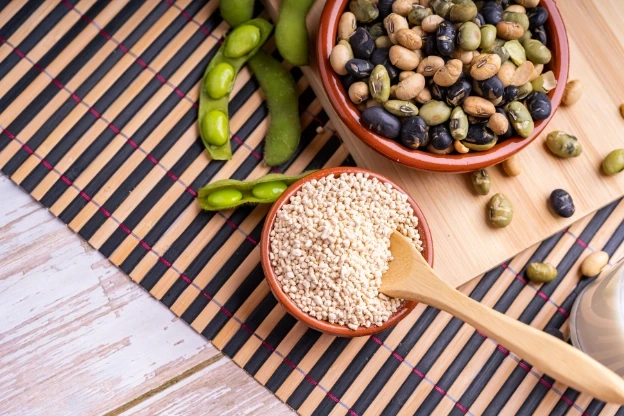Lecithin granules in Netherland made from soybeans, sunflower seeds, or egg yolks provide important phospholipids such as phosphatidylcholine. They promote heart, brain, liver, and skin health, aid in fat digestion, and act as emulsifiers in cooking. They can be mixed into smoothies, yogurt, muesli, or sauces, or consumed directly. Before using lecithin granules, always consult with your doctor, especially if you have allergies or other medical concerns.
Lecithin granules, a natural substance derived from soybeans, play a significant role in promoting overall health and well-being. In this comprehensive guide, we will delve into the various aspects of using lecithin granules, from understanding its composition and health benefits to practical tips on incorporating it into your daily diet. Whether you are looking to boost brain function, improve digestion, or enhance the texture of your baked goods, this article will provide you with valuable insights on how to make the most of this versatile supplement.
1. What is Lecithin Granule?
Lecithin granules are a natural fat substance that consists of phospholipids, mainly phosphatidylcholine. These phospholipids are essential components of cell membranes and play a crucial role in various bodily functions.
Sources of Lecithin Granule
Lecithin granules are commonly sourced from soybeans, sunflower seeds, and egg yolks. They can also be derived from other plant sources like canola and corn.
2. Health Benefits of Lecithin Granule
Supports Brain Health
Lecithin granules are rich in choline, a nutrient that is vital for brain health and cognitive function. Choline helps in the production of acetylcholine, a neurotransmitter that is essential for memory and learning.
Aids in Digestion
Lecithin granules can help emulsify fats in the digestive system, making them easier to digest. This can aid in the absorption of fat-soluble vitamins and improve overall digestive health.
Cardiovascular Health Benefits
The phospholipids in lecithin granules can help lower cholesterol levels and reduce the risk of cardiovascular diseases. They also promote the health of blood vessels and support proper circulation.
3. Incorporating Lecithin Granule into Your Diet
Simple Ways to Add Lecithin Granule to Your Meals
Sprinkle lecithin granules over salads, yogurt, or oatmeal for a nutritional boost. They can also be mixed into smoothies or blended into dressings and sauces.
Recipes and Ideas for Using Lecithin Granule
Use lecithin granules as a natural emulsifier in homemade mayonnaise, salad dressings, or sauces. They can also be added to baked goods like muffins or cookies for a softer texture.



